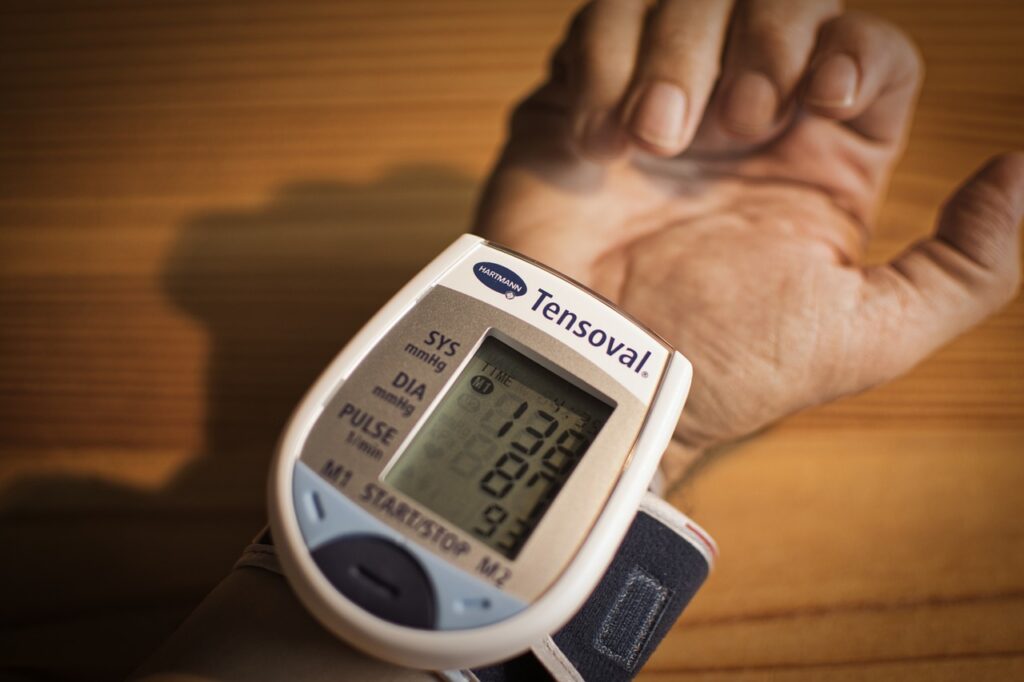Hypertension: The Silent Killer Revealed
Hypertension: The Silent Killer Revealed
In today’s fast-paced world, where stress levels are soaring and unhealthy lifestyles have become the norm, a condition quietly creeps upon millions of individuals worldwide: hypertension, often referred to as the silent killer. Hypertension is a chronic medical condition characterized by abnormally high blood pressure levels, and if left untreated, it can lead to severe complications, including heart disease, stroke, and kidney failure. In this blog post, we will delve into the intricacies of hypertension, its causes, symptoms, and the essential steps to prevent and manage this silent killer.
Get Better With Algebra Healthcare

Your Good Health Is Just A Call Away Visit our Social Media & Read Blogs
Your Good Health Is Just A Call Away
+971 501 317 063 / 800 200 100

Understanding Hypertension:
Hypertension occurs when the force of blood against the walls of the arteries is consistently too high. Blood pressure is measured using two numbers: systolic pressure and diastolic pressure. The systolic pressure represents the force when the heart contracts, while the diastolic pressure measures the force when the heart is at rest. The normal blood pressure reading is around 120/80 mmHg. However, hypertension is diagnosed when blood pressure consistently exceeds 130/80 mmHg
Causes and Risk Factors:
Multiple factors contribute to the development of hypertension. Some of the most common causes and risk factors include:
- Unhealthy Lifestyle: Poor dietary choices, high salt intake, lack of physical activity, obesity, excessive alcohol consumption, and smoking can all increase the risk of developing hypertension.
- Genetic Predisposition: Family history plays a significant role in hypertension. If your parents or close relatives have high blood pressure, you may be at a higher risk.
- Age: As we age, the risk of developing hypertension increases. This can be attributed to the gradual stiffening of arteries and the loss of elasticity.
Stress: Chronic stress triggers the release of stress hormones, which can elevate blood pressure levels over time.
Symptoms and Complications:
One of the dangerous aspects of hypertension is its lack of noticeable symptoms in the early stages. Most individuals with high blood pressure are unaware of their condition until they experience severe complications. However, as hypertension progresses, some common symptoms may include headaches, dizziness, blurred vision, chest pain, and shortness of breath.
If left uncontrolled, hypertension can lead to severe health complications, including:
- Cardiovascular Disease: High blood pressure puts strain on the heart, increasing the risk of heart attacks, heart failure, and other cardiac conditions.
- Stroke: Hypertension damages the blood vessels in the brain, leading to an increased risk of stroke.
- Kidney Disease: The kidneys play a vital role in regulating blood pressure. Prolonged hypertension can damage the blood vessels in the kidneys, impairing their function.

Prevention and Management:
The good news is that hypertension is largely preventable and manageable through lifestyle modifications and, in some cases, medication. Here are some strategies to help prevent and manage hypertension:
Healthy Diet: Adopt a diet rich in fruits, vegetables, whole grains, lean proteins, and low-fat dairy products. Limit your intake of sodium, saturated fats, and cholestero.
- Regular Exercise: Engage in moderate aerobic exercise, such as brisk walking, jogging, or swimming, for at least 150 minutes per week.
- Weight Management: Maintain a healthy body weight by balancing calorie intake and physical activity.
- Stress Reduction: Practice stress management techniques like meditation, deep breathing exercises, or yoga to reduce stress levels.
- Limit Alcohol and Quit Smoking: Limit alcohol consumption to moderate levels and quit smoking altogether to reduce the risk of hypertension.
- Regular Blood Pressure Monitoring: Get your blood pressure checked regularly, especially if you have risk factors or a family history of hypertension.
- Medication: In some cases, lifestyle modifications alone may not be sufficient to control blood pressure. Your healthcare provider may prescribe medication to help manage hypertension effectively.
Hypertension may be silent, but its consequences are far from quiet:
Taking proactive steps towards prevention, early detection, and management can save lives and protect individuals from the devastating complications associated with high blood pressure. By making healthy lifestyle choices, monitoring blood pressure regularly, and seeking medical advice when necessary, we can unmask the silent killer and live healthier, longer lives.

